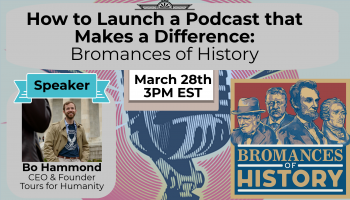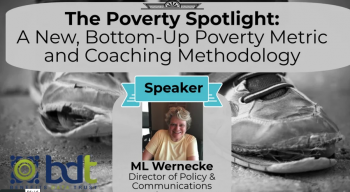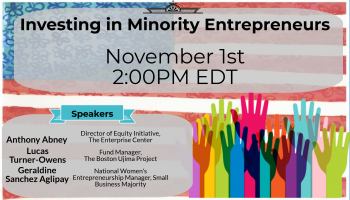Public Agenda and Social Innovations: Speaker Jesus "Chuy" Garcia - Edition 33
Other Videos

Across the globe there has been a rapid rise in the number of social sector innovators and entrepreneurs who want to find out-of-the-box solutions to society’s problems, and they are increasingly deploying the methods of business and private capital to help them to do so. On March 27th, Social Innovations Journal President, Mike Clark, had the opportunity to interview one of these change makers, Karen Shaw Petrou. The American Banker in 2012 dubbed Petrou "the sharpest mind analyzing banking policy today – maybe ever.” In 2017, the International Monetary Fund referred to her as “one of the most prominent non-governmental voices on financial regulation,” and in 2018 Bloomberg’s banking analyst described her as being “widely viewed by both sides of the bank regulation debate as incredibly smart.” an influential adviser to bankers and regulators, she has made a career of deciphering complicated financial regulations. Now she’s trying to decode another type of puzzle. How to cure blindness. Here’s our interview from March 2019

Environmental sustainability has come to the center of American consciousness, as the increasingly destructive effects of global warming have slammed communities across the country. From fires in the west to floods in the east, communities throughout the United States are facing unprecedented infrastructure challenges including compromised energy, water, and transportation systems. Unless addressed, decades of neglect and lack of investment will result in loss of business sales, reduced jobs and wages, and negative impacts to the country’s GDP. Federal, state, and local governments face a $1.4 trillion public funding gap to address infrastructure challenges -- and by 2040, this funding gap will be more than $5 trillion. This webinar brings together experts from across the country to discuss what latest innovations are being done to combat the effects of global warming. Attendees can expect to receive an inside look into the coming trends, opportunities and what communities, businesses and non-profits can do today, to build effective and sustainable models. Moderated by: Nate Bronstein, MPA, MSSP, MsED Speakers: Rose Jordan, Marketing Director Greenprint Partners Kelly Roache, Director of Inclusion Soltice Becky Bronstein, Program Coordinator of Washington Green Schools

In the War on Poverty era, poverty was typically understood to be a thing that happens to other people. In the 1964 Economic Report of the President, which laid out the budget for the War on Poverty, the Administration suggested that poor people lived in “a world apart. . . isolated from the mainstream of American life and alienated from its values.” People living in poverty were them, not us, and poverty itself was an anomaly, an aberration, a deviation from the norm. As a result, part of the mission of the Great Society was to incorporate them into “mainstream” institutions and culture, through education, job training, housing, medical care and so on. But we now know that poverty in the U.S. is not an anomaly or something experienced by a small minority of people. According to U.S. Census Bureau data, 34.5% of all Americans were poor at least once for two months or more between 2009 and 2012. That’s Lesson One. Attendees can expect and inside look into best practices for combating poverty, coming trends and what individuals and organizations can do today, to support this movement. Presented by: ML Wernecke, Director of Policy & Communications, Benefits Data Trust

New data reveals that there are more than 11 million minority-owned businesses in the United States. This number is twice what it was 10 years ago and is expected to grow at an exponential rate. Minority entrepreneurs are a driving force in the US economy that helps to inspire innovation through alternative cultural experience and perspective. Despite these numbers most minorities in the US live in communities chained down by cyclical unemployment and systematic barriers preventing true economic growth. Empowering more communities to rise out of poverty and to take control of their community issues will further strengthen our nation as a whole; but that’s easier said than done. This webinar brings together experts to discuss how best our communities are tackling the issues of entrenched marginalization. Attendees can expect to learn about best practices for empowering and encouraging minority entrepreneurs, the unique barriers they face and what is likely to come in the next few years. Moderator: Nicholas Torres, CEO, Social Innovations Journal, Institute, and Lab Presenters: Anthony Abney, Director of Equity Initiative, The Enterprise Center Lucas Turner-Owens, Fund Manager, The Boston Ujima Project Geraldine Sanchez Aglipay, National Women's Entrepreneurship Manager, Small Business Majority

